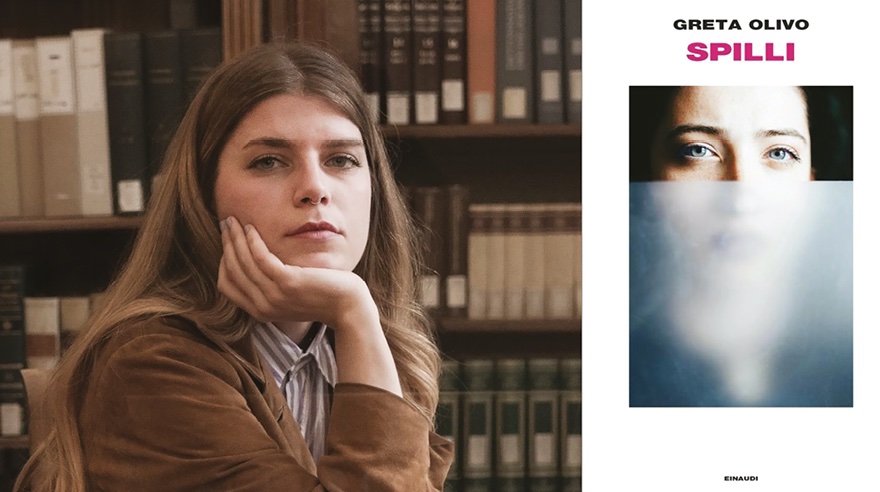Page after page, “Spilli” (Pins) tells a story that grows in the reader’s heart as Livia, the main character, grows up. As a child, Livia had an eye problem which, over time, grew so serious that her autonomy became limited. In high school, she has to tackle the problems of adolescence, which, combined with her visual impairment, make daily life very difficult. With an ironic and engaging style, able to lighten up as well as touch the heart, Greta Olivo tells a story (even if in the form of a novel) that reflects hers: that of a young woman dealing with severe myopia.
Growing up means letting the past go and starting to acquire autonomy. How hard was this for you, and how much of you is in Livia?
You generally tend to identify the main character with the author, but it’s not that simple. In our case, many things are similar: our background, the fact that we’re both from Rome, and that we resemble each other physically. And when I wrote about Livia and her adolescence, when she has to face her limits for the first time, I certainly had to remember what it was like to be a teenager. It wasn’t hard, because the part of me that felt profound uneasiness and a certain difficulty in relating to the world has remained, and I don’t think it will ever go away. This part exists not only in Livia, but also in another character very dear to me, one that was hard to write about because he’s more ambiguous: Daniel, her classmate, with whom I may identify more. I was a very different teenager from Livia, including socially. I don’t know if I’d be able to behave like her, and that’s why I decided to make her very different from me, from what I was. Livia expected to live a normal life and her illness took it away, whereas I always had a feeling of constant inadequacy, which later came in handy. I was a child who observed everything because I lived very little, I moved around very little, and all that observation helped me when I started writing.
We all try to be acknowledged in the gaze of others. What does it mean to form one’s identity when that gaze is always somewhat in the dark?

There’s a chapter that talks about when Livia goes blindfolded to Via del Corso with her guide, and I did this myself so I could better understand what it meant. Blindfolded, cane in hand, with my guide, I discovered that the worst thing wasn’t walking and not knowing where to go. It was when, at a certain point, he said, ”Everyone is looking at you.” I started feeling so stressed, so tense, that I had to stop the walk. And this is because we all exist in the gaze of others and, especially when we’re teenagers, being seen is absolutely essential. Being or not being looked at, considered, loved in the eyes of others has made all of us the adults we are. Each of us has reacted differently to that presence or absence, and we’ve carried it with us since adolescence because that’s when we started to become aware of others.
Is it so important to see in order to know and understand the world around us?
The world is made for people who see. Sight is the sense that guides us the most. It lets us decide where to go, physically, not just metaphorically. People with visual impairment have a vital need to tell their story, and this is one reason I sensed no resistance when I went to the Sant’Alessio Center to say that I was writing a book about a girl who becomes blind. People who can see are afraid of people who can’t. They think blind people live in another world and don’t need to see. But this is wrong. I often left the Center with a feeling of lightness, and I finally understood that it was because these people didn’t see me when I spoke with them. And this put me at ease, because it’s tiresome – especially for women – to be constantly looked at.
Later, making friends, I discovered that everyone had asked the secretary (the only person who could see) what I looked like. Because even though people can’t see you, they want to know what you look like, and this was important for me to understand. People who can’t see live in a world that can’t be separated from sight. It’s important to remain a part of it, not suddenly become something else.
Writing, imagining, creating worlds is a way to put things in order or to escape?
I think writing is a way to give narrative meaning when life lacks one. Literature is much more reductive than life: it takes a part, a portion, and tries to give it back, and sometimes it simply can’t. But it’s also true that if you write about a small part of the world, that small part exists for someone. Writing makes that part truer, more real.

.jpg)



.png)